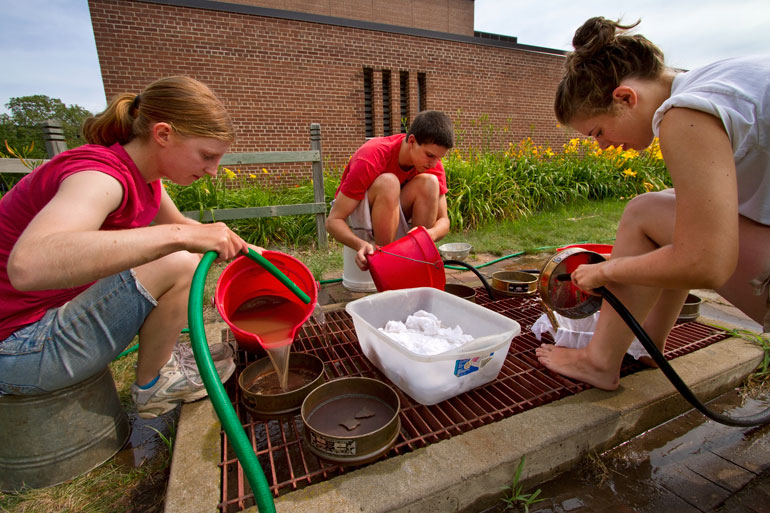Posted 9:02 p.m. Friday, June 29, 2012
UW-La Crosse archaeology students uncovered a second “long house” and other remains from an ancient culture that once inhabited this region.
 [/caption]
UW-La Crosse archaeology students uncovered a second “long house” and other remains from an ancient culture that once inhabited this region. The students excavated a site near the border of Holmen and Onalaska as part of a five-week class, which trains students how to do archaeological excavations. In addition to the long house, students unearthed pottery, broken stone tools, animal bones and the remains of trash left at the site sometime around 1400 to 1500 A.D., says David Anderson, UW-L professor of archaeology.
The archaeological site is the remains of some of the first full-scale farmers in Wisconsin — named the Oneota. The remnants of the long house are significant, says Anderson. UW-L archaeologists and students have uncovered the rows where the posts holding up the walls of the house once were.
Archaeologists are unsure what happened to the Oneota. Some think populations decreased through the introduction of European disease. Others think warfare caused their decline. Still others believe the Oneota moved westward and became involved in bison hunting with plains tribes.
[/caption]
UW-La Crosse archaeology students uncovered a second “long house” and other remains from an ancient culture that once inhabited this region. The students excavated a site near the border of Holmen and Onalaska as part of a five-week class, which trains students how to do archaeological excavations. In addition to the long house, students unearthed pottery, broken stone tools, animal bones and the remains of trash left at the site sometime around 1400 to 1500 A.D., says David Anderson, UW-L professor of archaeology.
The archaeological site is the remains of some of the first full-scale farmers in Wisconsin — named the Oneota. The remnants of the long house are significant, says Anderson. UW-L archaeologists and students have uncovered the rows where the posts holding up the walls of the house once were.
Archaeologists are unsure what happened to the Oneota. Some think populations decreased through the introduction of European disease. Others think warfare caused their decline. Still others believe the Oneota moved westward and became involved in bison hunting with plains tribes.